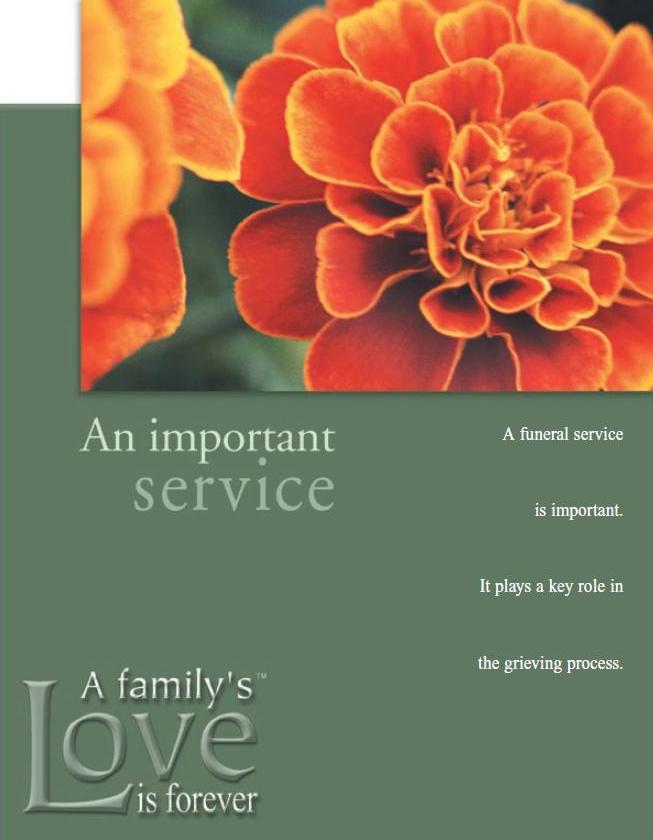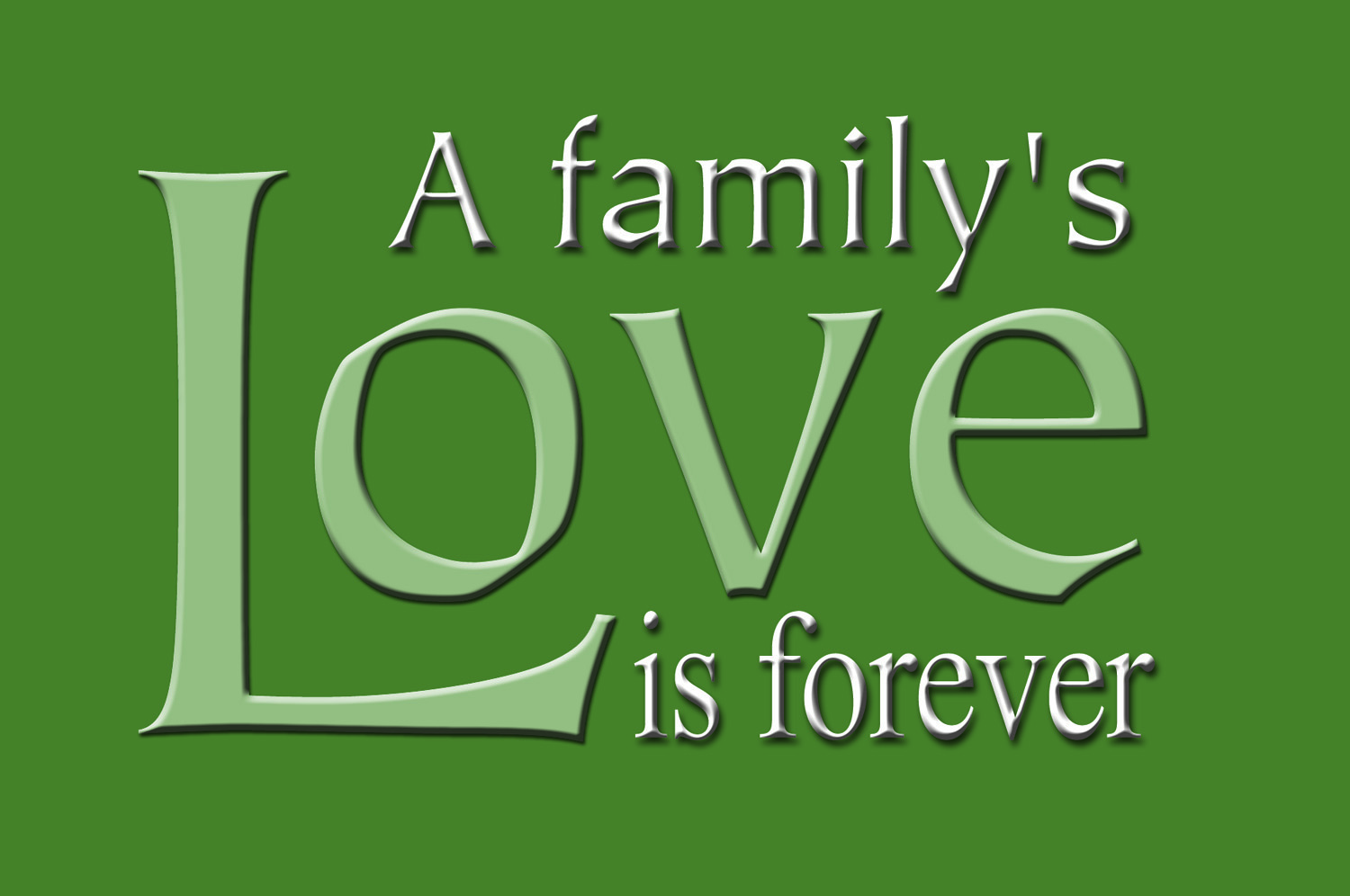Cremation Services
What is cremation?
Cremation is an alternative method of disposition of human remains at the time of one's death. In cremation, a person's body is reduced to small pieces of bone fragments by a process of intense heat. The end result is referred to as cremated remains, ashes, or sometimes cremains.
What is the history of cremation?
Cremation is a very old process, dating back as far as the Stone Age. For much of human history, cremation was very common both in the East and West. In the early Christian era, cremation declined in the West as early Christians preferred earth burial. Current interest in cremation was revived in the Western world in the late 1800's.
Is cremation now common in the U.S.?
Cremation is a very common form of final disposition in the United States, however, each state varies in percentages.

Why do people select cremation?
Cremation is simply a matter of choice and preference. People have a variety of reasons for selecting cremation, influenced by ethnic background or family traditions. The concept that cremation is selected because of perceived lower funeral costs or lack of land for earth burial is totally inaccurate. In rare instatnces is land a concern, and funeral costs are based on fixed expenses as well as a family's selection of merchandise and services.
Are there religious objections to cremation?
Most Christian churches do not object to cremation, considering it an alternate choice for their members. Traditional Jewish and Islamic Law prohibit cremation, however, Hinduism and Buddhism permit it. If you have any questions concerning your religious denomination's views on cremation, you may wish to discuss them with a member of your clery, or your Funeral Director.
What happens to the remains in cremation?
After cremation is completed, the bone fragments and residue are encased in a plastic or cardboard container and returned to the family or a designated person, such as the Funeral Director.
What is done with these cremated remains?
Family members have a variety of choices upon the completion of cremation. They may choose to bury the cremated remains in a family plot or place them in a mausoleum in a cemetery of their choosing. Some cemeteries also have columbariums, which are buildings especially designed to store urns. The urns are assigned recessed compartments, called "niches", which are encased in glass or ornamental stone.
Some families may decide to take their loved ones cremated remains home with them, either to display, or sometimes to bury on their property.
Can we scatter the cremated remains?
This is an option as well. However, careful consideration should be given before choosing to scatter cremated remains, as it is final and irreversible.
Over time, some bereaved persons find it reassuring to have some type of memorial to the person they loved. Additionally, some have found the scattering of cremated remains to be a traumatic experience, although there are now scattering urns or biodegradable urns that can make this process easier.
Some cemeteries have gardens especially designed for scattering cremated remains. If you are planning on scattering cremated remains anywhere other than on your private property, it is advisable to check any local laws and ordinances. Your Funeral Director will be able to advise you in these situations.
If I choose cremation, can I still have a funeral or memorial service?
Absolutely. Many people who choose cremation still elect to have some form of religious service or secular remembrance, as it is a vital part of the grief process.
Some people choose to have a funeral service with the casket present, while others choose to have a memorial service, with or without an urn present.
Can I have a viewing?
Again, absolutely. Cremation may follow a traditional funeral service that includes visitation, viewing, and a service, with an open or closed casket.
Cremation should be considered an alternate form of final disposition, not an alternative to having a funeral service.
Is embalming necessary/
The purpose of embalming is to disinfect and preserve a body for a limited period of time. if there is to be viewing with visitation and funeral services will the body present, embalming is essential.
There may also be health, legal or religious reasons that make embalming desirable or necessary.
Do I have to purchase a casket?
Some form of rigid container or casket is necessary to transport the body to the crematory and place it in the cremation chamber. Generally, this is made of a combustible material such as wood.
If viewing with visitation and services is desired, a casket is ordinarilly selected. In some states, funeral homes may have a rental casket available to use for services. The interior of these caskets is removable and that is the container the body would go to the crematory in.
Additionally, there are a variety of alternative containers that can be selected from for the cremation process, made of combustible materials such as cardboard, fiberboard or pressed wood.
Do I have to purchase an urn?
Cremated remains are returned from the crematory in a temporary container made of either cardboard or plastic. Many people prefer to have the cremated remains transferred to an urn.
Typicall, the urn that is selected will have very special meaning. People may elect to purchase urns that they consider appropraiate to or symbolic of the deceased. Some families even choose to make the urn themselves.
Your Funeral Director can help you find an urn that is appropriate for your needs. If you are planning to take your loved ones ashes home with you, your choices are endless. As previously mentioned, if you plan on scattering the ashes, there are scattering urns or biodegradable urns that can simplify the process.
If you are planning to use a columbarium, mausoleum or cemetery, your Funeral Director can talk you through requirements and/or restrictions.
Do I need a funeral director?
Funeral Directors serve many important functions. In New York State, a licensed funeral director is required to transport a body, obtain necessary permits and authorization, and process legal documents required at the time of death.
Generally, what does cremation cost?
Because families have so many options with a cremation, these costs can vary widely. Services and merchandise selected will determine the overall cost. You may wish to discuss your wishes with a Funeral Director to obtain an estimate for the selections you prefer.
Can a person be cremated immedaitely?
In some instances, yes. Some states have a forty-eight hour waiting period form the time of death until the time a person may be cremated. This situation could necessitate embalming or refridgeration services when available.
In all cases, there is a time frame for obtaining necessary information and filling required permits and authorizations.
Does cremation affect the process of grief?
With any method of funeral or final disposition, three aspects are important. The first is that survivors be comfortable with the choices made. Second, people often find it therapeutic to observe a death with some form of ceremony or memorial service. Third, many people find ti helpful to have a place of memorialization of the person who died where they can visit later.
As long as these three considerations are dealt with, the form of final disposition should not affect the grieving process. Sometimes with cremation, there is a tendency to shorten the time for grief. The grief process does not happen overnight. It requires a period of time for recovery, for which each individual's needs are different.
It should be noted that even though the Jewish faith has a funeral and burial shortly after death, they have a grieving period of seven days following the service, and do not work or do household duties to readjust their lives.
Psychologically, people need to deal with their grief at the time of loss. This gives them the capacity to cope with the adjustment period that follows.
Can I make arrangements for cremation in advance?
Absolutely. In fact, it is wise to make any funeral arrangements prior to the time of death, not just when cremation is desired.
As with other pre-arrangements for a funeral, it is recommended that you discuss your plans in detail with members of your family.
In instances where one may not have a close next of kin that could authorize cremation when the time comes, an Appointment of Agency form can be provided to you by your Funeral Director. This form allows you to appoint someone to execute your final disposition wishes, limiting their scope to that only.
Where can I obtain further information about cremation?
You can consult a Funeral Director for any unanswered questions you might have concerning cremation. He or she will be able to explain all the options available with cremation, as well as costs, legal considerations and pre-arrangements.







